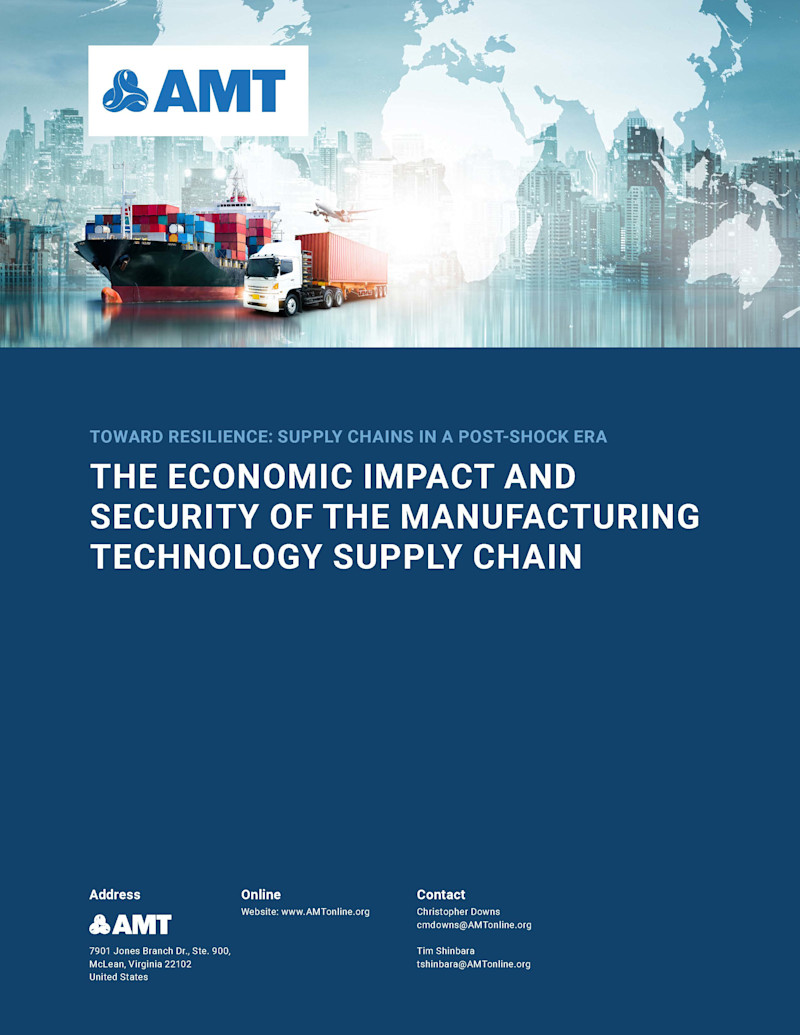The supply chain disruptions caused by COVID-19 may have appeared unexpected and sudden, but they are the result of decades of decision-making that led to key parts of the North American manufacturing supply chain being offshored. Often, those decisions made sense. It is profitable for American companies to lower their labor costs and decrease their regulatory burden; but in doing so, many became over-reliant on foreign suppliers, and the supply chain buckled under this recent pressure. The weaknesses in the supply chain are likely to widen and threaten the American industrial base unless action is taken.
The manufacturing industry in the United States has been key to its economic growth and prosperity for the past century. Even as the U.S. economy has shifted toward the service sector, manufacturing is still the foundation of economic growth and job creation, and its importance cannot be overstated. For every dollar invested in the industry, it returns $2.74 back to the economy, the highest multiplier of any industry. Nearly 13 million Americans work in the sector, and many of these jobs are highly skilled. In 2019, those working in the manufacturing technology sector make higher wages than both the broader manufacturing industry and the private sector as a whole.
The manufacturing industry in the United States also accounted for 68% of domestic R&D in 2014, or $233 billion out of $341 billion in total R&D. Such an investment pays dividends in terms of intellectual property being created in the United States and creating the foundation for the next level of R&D. It helps to ensure that American companies lead the world in new technology advancements, new product development, and innovation and attract global engineering and technology talent.
The core of the manufacturing industry is manufacturing technology (MT). High quality MT is what differentiates great manufacturing from good manufacturing. It allows the high quality, precision, and innovation that powers American manufacturing forward and enables advancements in production processes and products that people rely on every day. Most importantly, MT enables all other manufacturing, and producing this machinery in the United States is important to securing the American industrial base. Unfortunately, this key part of the supply chain is at risk as American machine tool manufacturers had 28% of the world market for machine tools in 1965 but only 5% of the world market today.
It is important for both policymakers and companies to understand the vital role MT plays not only in the U.S. economy but also in producing critical components for the rest of the manufacturing supply chain that ensure a comparative economic advantage over other countries. MT may be a small subset of overall manufacturing, but it is the most important part in that network. Relying on other countries for MT puts national security at risk in the case of geopolitical conflict, natural disasters, health pandemics, or other supply chain disruptions.
Now is the time to recognize the vulnerabilities related to offshoring, consider strategic alternatives, and create a more resilient and sustainable supply chain that ensures that America continues to prosper, innovate, and protect its vital national interests.
To learn more about the role that MT plays in manufacturing and innovation in the U.S. economy, read the white paper here.






